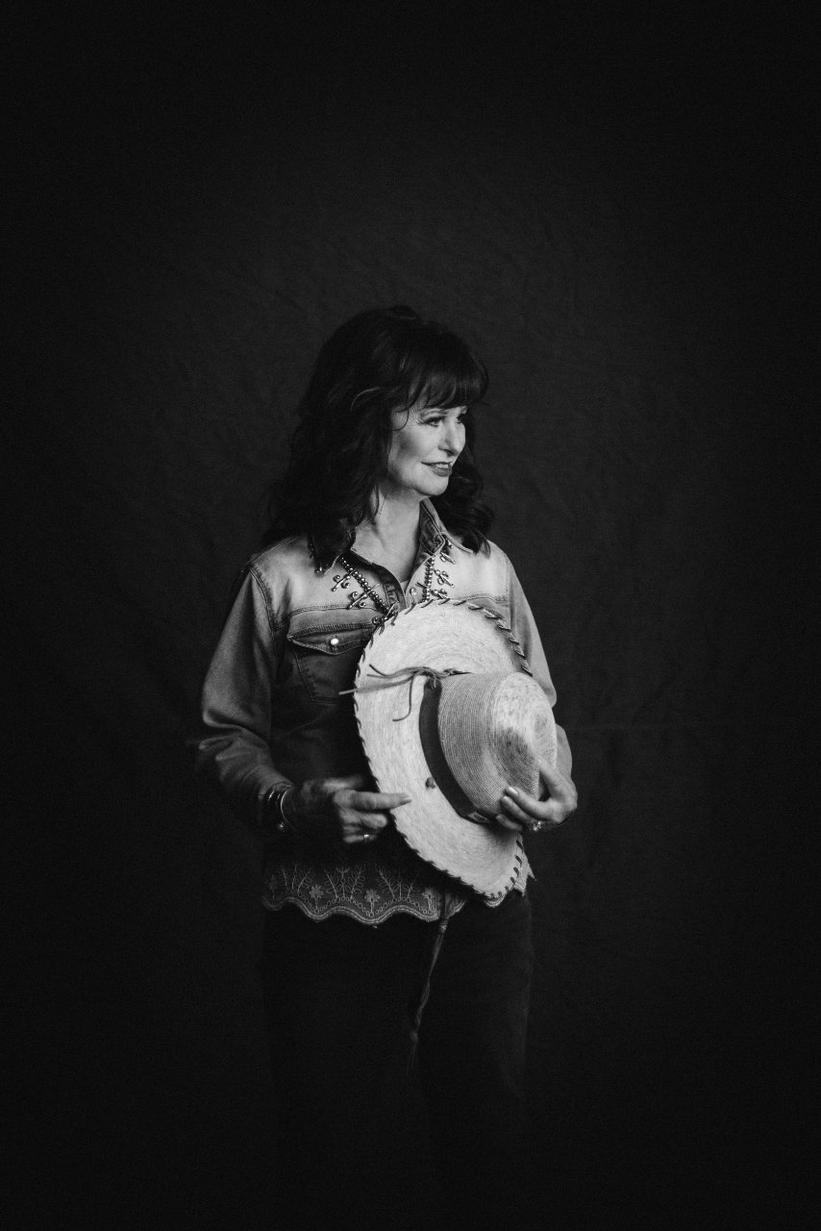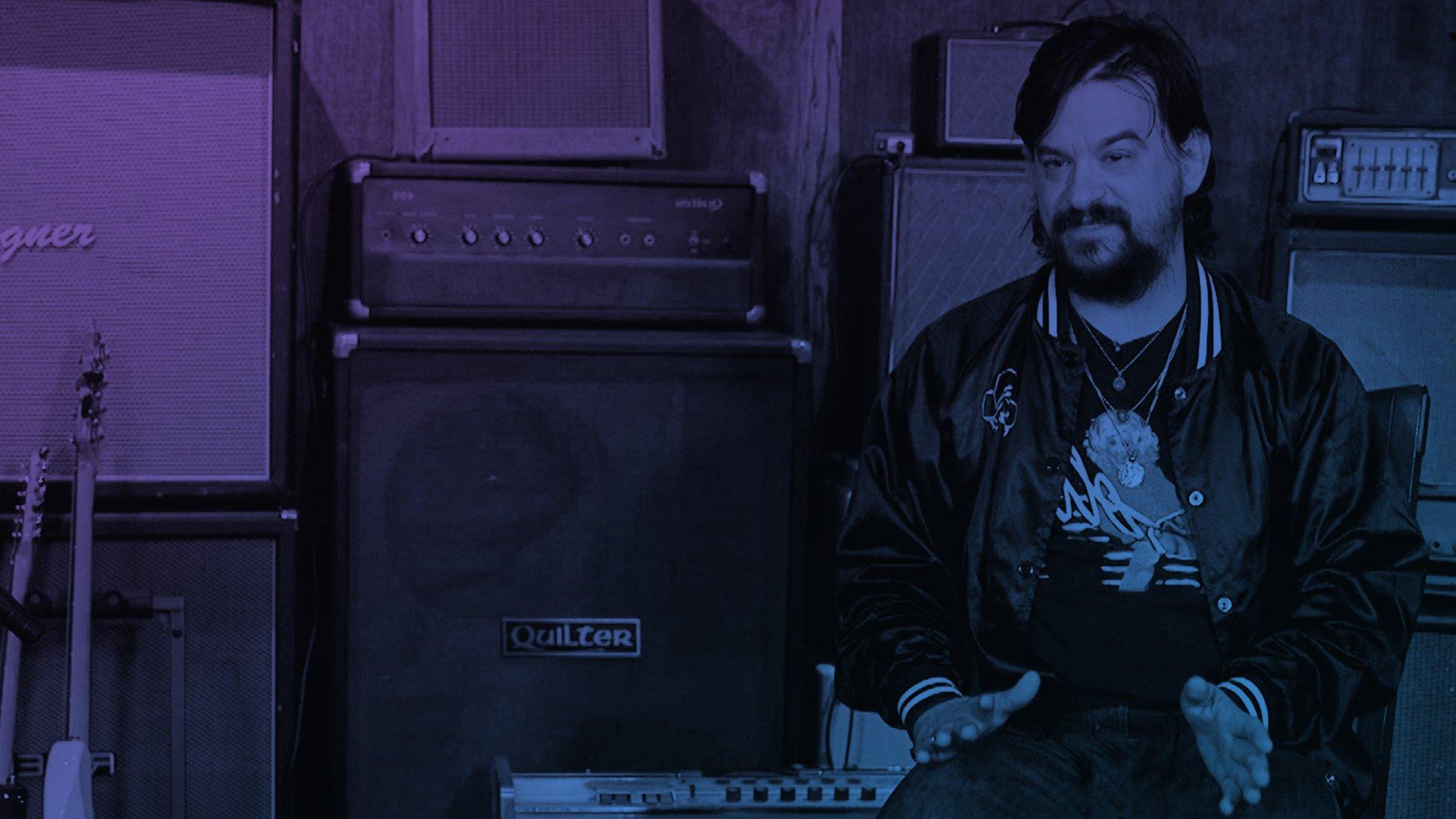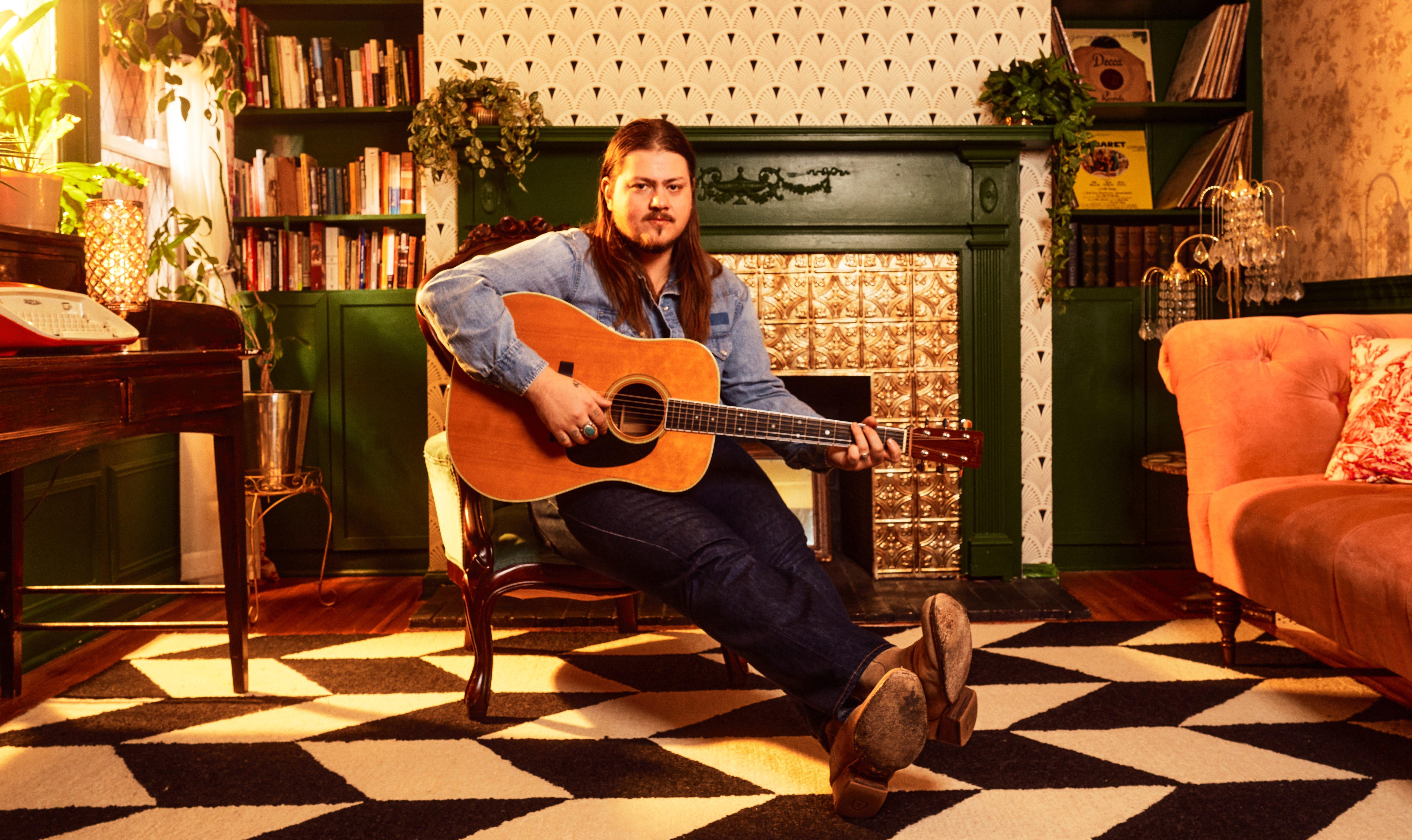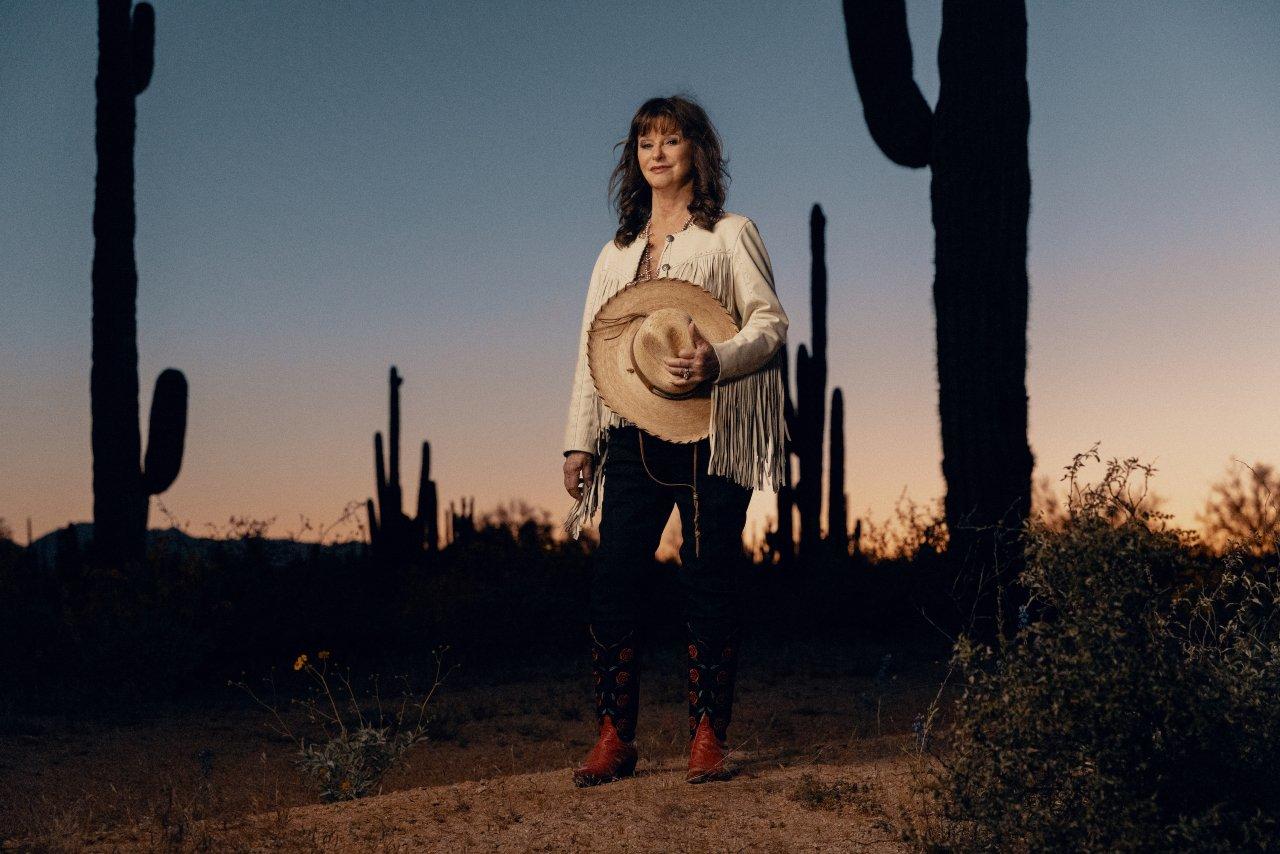As one of the lone women in the outlaw country milieu, Jessi Colter has navigated the music industry with grace for more than half a century — through false starts, lulls, and the death of her husband and collaborator, Waylon Jennings.
But while some living legends can feel a touch frozen in time, Colter is constantly in motion.
"We've just returned home a few days before the Hall of Fame performance, and my house is a wreck," she reports to GRAMMY.com, upon landing back in her Arizona climes. During a brief conversation, she's speed-eating lunch and jumping in a car; she even suspects this interviewer was multitasking as well. ("Are you doing dishes?" Colter inquires, in response to an errant clank over the line.)
That consistent movement — of body, of creative practice — allowed Colter to cook up one of her most inspired albums. Edge of Forever — produced by GRAMMY nominee Margo Price, and mixed by Colter's son, three-time GRAMMY winner and five-time nominee Shooter Jennings.
Backed by Price's crack band, tunes like "Standing on the Edge of Forever," "Lost Love Song" and "Can't Nobody Do Me Like Jesus" crackle with potency — and have all of the impact of her early work, prior to all these spins around the sun.
But this timelessness doesn't mean it's simply retro, or '70s; it moves through time. Edge of Forever couldn't have happened without the lumps she's taken in the country machine, or the jubilations.
Furthermore, it proves that the hitmaker behind "I'm Not Lisa" and "What's Happened to Blue Eyes" back in '75 remains a force — as a feisty, vital country-music matriarch. Below, Colter chats with GRAMMY.com about Edge of Forever, and what's on the other side.
This interview has been edited for clarity.
Congrats on the release of Edge of Forever. I think the word "timeless" gets thrown around a little too much, but the description fits here.
I had one fellow, I asked him how old he was. I figured he was 20 or 28 and he was 60. I think it was [for] Variety. When I first talked to him. And he said it just has such a feeling that it takes him back to the '70s, and I wasn't sure what he meant exactly. I just am who I am and that's who I'll always be.
But anyway, he loved it. He said it really felt, for him, comfortable. And I understand what he's saying. There's a whole lot out there that's not so comfortable.
Interesting. What do you hope people take away from your music?
Well, certainly that, and I hope I communicate with feelings they've had. I loved it on "I'm Not Lisa," when the little girls would send me tapes of themselves singing it. I thought I have communicated, because when I write it's very inward of my experience or somebody really close to me and so forth. So that's how it goes.
Take us back to your early conception of Edge of Forever — the spark that lit a flame.
Well, I had songs. And I became acquainted with Margo, and she helped me out on a Facebook flash [giveaway] of my book An Outlaw and a Lady, for Harper Collins, that I wrote with David Ritz.
And this was 2015. She was pregnant with Ramona when we cut this album and she was about to have the baby. So as far as the genesis, it took two or three visits together, and [her husband] Jeremy [Ivey] and she both intimated that they would love to see me do an album.
It was years later that we did it. And we did it quickly and directly, because she was about to have her baby. And so it didn't take the kind of time that I'd taken on other albums, but it's taken time to wind its path to the yellow brick road, which seems to be Appalachia Records, who she'd worked with before.
[Label owner Loney Hutchins is] great to work with, and I've never worked with a small label that worked with other indies. But anyway, they've been terrific. And so we just kind of were drawn to each other. And I had these songs that she reacted to, and then there was a couple others, then one written on the spot.
And so it just happened and now it's taken the legal teams, and the manager — this and that, so forth. Anyway, it's worked out. It worked its way to here.
Can you talk about your dynamic with Margo and Shooter?
Yeah, it's fantastic. It's easy. I've worked with Shooter before on The Passion of the Christ, where he wrote on the spot with me. It was an album that went with The Passion of the Christ; It wasn't a soundtrack.
We wrote a song called "Please Carry Me Home." If you haven't heard it, try it, because we wrote it and he produced it on the spot. Then [my daughter] Jennifer [or Jenni Eddy] and I actually wrote "Secret Place," which is on this album, a number of years ago.
Waylon was still with us, and he heard that song — and he didn't often say just this, but he said, "You've got to do that." And it's just been in my pocket.
Often, artists keep songs that inspire them. They don't use them until the time is right. And so there were a number of songs that I had been holding onto. "Lost Love Song," "Can't Nobody Do Me Like Jesus." I totally rewrote that spiritual except the bridge.
Anyway, the dynamic was fantastic with Margo, with Shooter, with Jennifer Eddy Jennings, my daughter; her father is Duane Eddy. Waylon was a wonderful father to her. So, it's been a gift; the whole thing has been a gift for me.
Working with Jenni Eddy must have a gift among gifts.
Oh, yes. She's so gifted and a great singer. She just hasn't come into the public yet, but she's working on a number of things.
And Struggle Jennings, my grandson, recorded a great album with her called Spiritual Warfare, where Struggle is rapping. [Jenni] sings, and she wrote the songs, and then he raps. And it's interesting.
I don't know what she'll end up doing. Her voice is much more melodic than mine, and she sings beautifully with me. It would be worth working to her and Jenny Lynn Young accompany me, if and when I perform. It''s magnetic, the whole thing.
As a singer/songwriter myself, even something I wrote a year ago can feel alien to me today. Can you talk about reacquainting yourself with tunes from many years ago?
I understand that, but if you love a song to start with, you'll always love it. And so that's how it went with me.
"Maybe You Should Have Been Listening" was one of Waylon's favorites on my classic albums, and "With or Without You" was something I wrote a number of years back for a girlfriend of mine who went through being stood up by a well-known man right before their wedding.
Little Stevie Van Zandt loved that song: "With or without you/ I'll go on alone… And like Bob Dylan said, if it's not right, it must be wrong." I love that. And if people would remember that. "Angel in the Fire" I wrote some time ago. I love it every time I sing it, with Lisa Kristofferson in mind.
"Lost Love Song" was a song that I held in my pocket to inspire me. It is talking about the prison of love. I never have been able to find who wrote it. He may be living, he may not, because I had this years before Waylon went, which was 2002.
"Hard On Easy Street" was great fun. I did it on an album that I [do not] yet have the right to publish. Never came out. It's a great song. "I Wanna Be With You" is always an upper, and percussionists particularly love that song because it's such a rhythm.
"Standing on the Edge of Forever" was a new song I wrote in the last 10 years [about]a relationship that just won't come together, and that's what that's about. But it's also, as Lenny Kaye edged me on to say, This is it, either or. It's that time you come to and it's enough of whatever it is, get on or get off.
"Can't Nobody Do Me Like Jesus" — oh, that's one of the great songs of all time. James Cleveland wrote it, but I rewrote it. But I don't find to ever get any income from that.It's just a great song talking about how it is. If you're going to do right, you may be alone.
"Fine Wine", Jennifer wrote that with some accompaniment by Margo, and it's talking about early widowhood. And it was how it was maybe four years ago, even though that was a 16-year mark of loss for me, I had been alone for 16 years when I said I'm open for love.
And as things work out and good things happen, I met my current husband, a rancher, horseman from Wyoming, and took it a few years to kind of get to know each other, but we're having a good time.
With Edge of Forever out in the world, what are you looking forward to in the near future?
Right now, I'm looking forward to a documentary I've been working with [a production team] on for eight years. It's called They Called Us Outlaws. Eric Gaberman, partnering with the [Country Music] Hall of Fame did so much research on our time — and the sentinel turn of music in our generation — that I said yes.
[It's a] film coming with so much fact, and then he brings it into the present. Those that have a mindset more to try to do what they wrote and how they did it. And the "outlaws" was more or less a branding in a time that branding wasn't even known, and it stuck. So, it's been useful to a lot of new artists coming with new sounds.

*Jessi Colter. Photo: Chris Phelps*
You've lived through so many epochs in the music industry, When you look back on your decades in the industry — all the triumphs and losses — what do you think of?
Well, there have certainly been chances. Don Was ran into us at the Crazy Horse in Orange County. He showed up in the dark, and scared me because I didn't know who he was. While Waylon was doing the show, and he just talked a minute and said, "You know what, Jessi? The '70s were so much fun."
There was something about that that was the beginning of a lot, but it was the ending of something. It was a major turn with the University in Austin having been exposed to a lot of rock. So when Waylon and Willie came with their sound there, they reacted more like a rock group — Waylon did not cross boundaries in those days. You didn't do it. The companies wouldn't allow it.
So, it was an amazing procedure that took place and we were so glad to be part of it. Since then, it's kind of rolled with the punches, and Americana has gotten its feet.
And Shooter has been miraculous in some of the things that he's yielded already. But Waylon and he both don't go for prizes. They do help you, but you have to have that creative want to.
When he was 16, he didn't want a car; he wanted Pro Tools. So, he started early on his path and is doing great. He was a little before his time in performance and then working through being the son of Waylon Jennings, he worked through that and did great.
He loved his father dearly, and he now is a great spokesman for his father, which I love. But all in all, we'll just have to wait and see what's going to happen around the corner.
On You're The One, Rhiannon Giddens' Craft Finds A Natural Outgrowth: Songwriting





